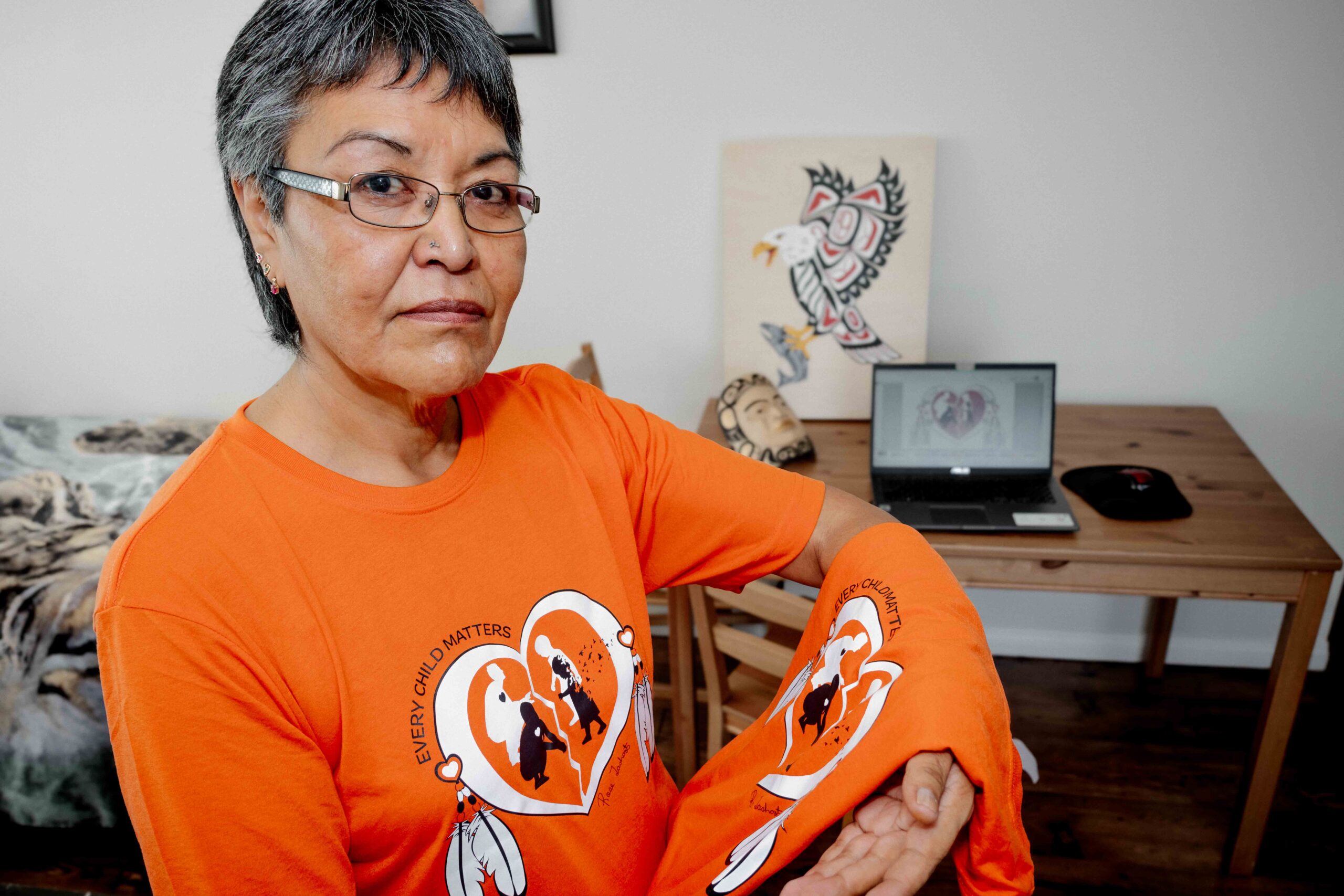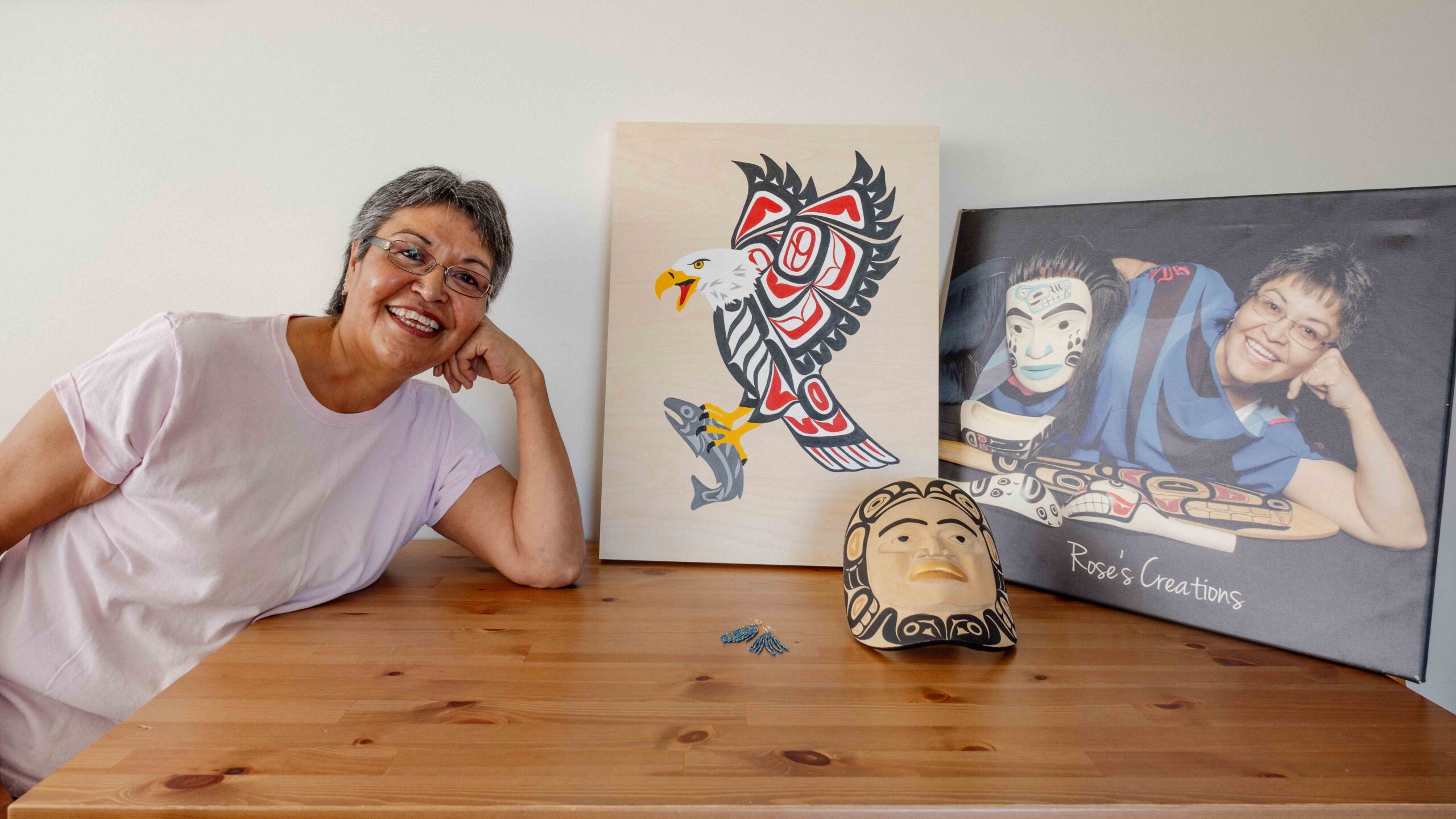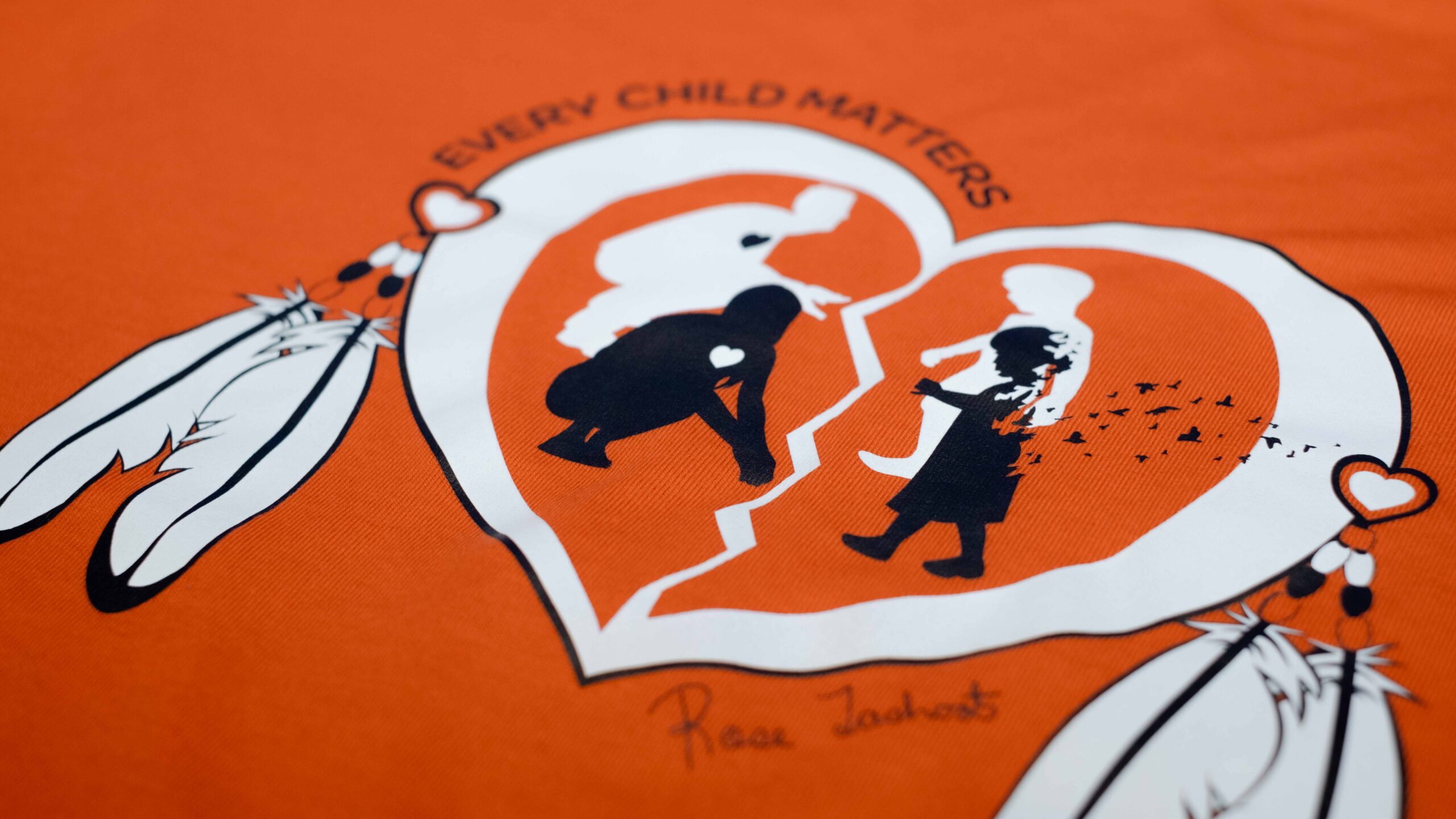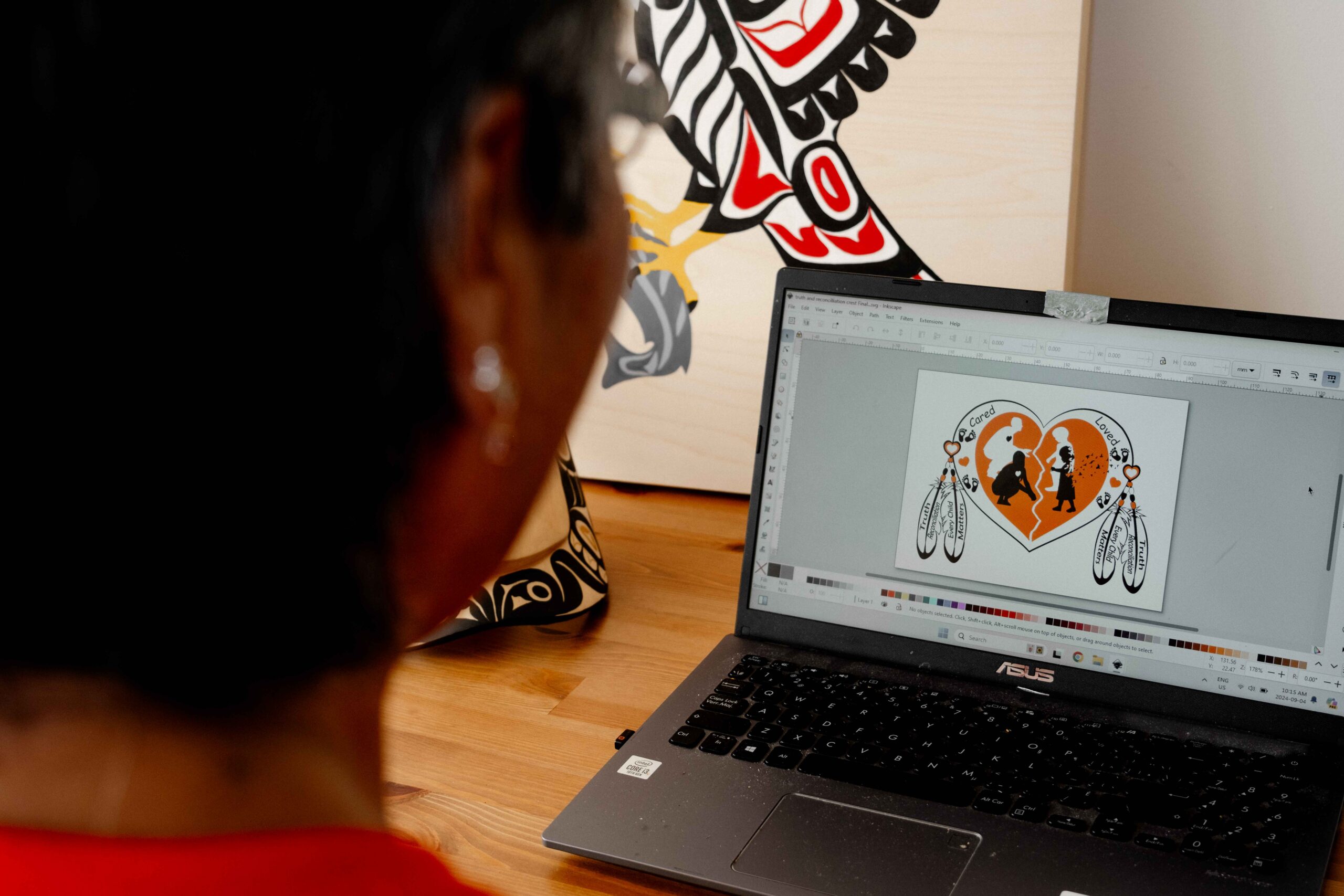“Inspiration for people back home” — Orange Shirt Day artist, Rose Tashoots
“Inspiration for people back home” — Orange Shirt Day artist, Rose Tashoots

Rose Tashoots has always had a penchant for art.
As a young child, she drew Sylvester and Tweety from the Looney Tunes cartoon, selling the art on the school playground for five cents.
“Believe it or not, they used to buy it from me,” recalls Rose, laughing.
But only recently did she “really get into art” after seeing the work of Dempsey Bob, a Northwest woodcarver and sculptor.
“I just fell in love with the artwork and wanted to learn how to do it,” says Rose, who belongs Tahltan Tlingit Nation, Wolf Clan.
That inspired her to attend the Freda Diesing School of Northwest Coast Art at Coast Mountain College in Terrace, B.C. where Rose earned a First Nations fine arts diploma.
The Freda Diesing school is the only school of its kind in Canada that specializes in traditional First Nations Pacific Northwest Coast art.
A multi-talented Indigenous artist, Rose carves, paints with acrylics on canvas and wood, and creates beaded roses and earrings.

And now she can add digital artist to her impressive repertoire, partnering with the the Orange Shirt Day Society and TransLink, to create her first digital art piece that was then printed on a t-shirt for Orange Shirt Day.
The day coincides with the National Day for Truth and Reconciliation commemorating the history and legacy of Canada’s residential school system.
Orange Shirt Day raises awareness on the impacts of the residential school system and the truth that every child matters.
A residential school survivor, Rose uses her art to reflect on and heal from the profound impacts of her experiences and highlight the perseverance of survivors and Indigenous communities.
The message on Rose’s shirt
Rose’s orange shirt design features a broken heart as its focal point with the words, “Every Child Matters.” It uses the colours orange, black, and white.
The orange heart represents the intergenerational trauma of the residential schools experienced by the children and their parents, who cared for and loved their children.
The parents are on the left side of the heart and the children are on the right side of the heart, with the girl, who had been abused, breaking apart.
The colour black symbolizes mourning for the children who were not able to carry on and tell their stories. While the colour white symbolizes healing and new beginnings for all those who survived and lived on to tell the tale.
The eagle feathers represent healing, honour, respect, wisdom and courage for all the survivors.

Rose’s shirt is available for purchase online in adult and youth sizes from the TransLink Store.*
We’re proud to partner with Rose and the Orange Shirt Day Society to sell her shirt, with proceeds supporting the society’s important initiatives.
“Inspiration for people back home”
Just as she was inspired by Dempsey, who’s also of the Wolf Clan, Rose hopes to be an “inspiration for people back home, especially residential school survivors.”
The traditional territory of the Tahltan and Tlingit is the area we call northwest British Columbia and southeast Alaska today. Rose, who now lives in Metro Vancouver, is from Terrace, BC.
When asked what she wants people to feel or think about when donning the shirt, Rose has two messages.
“Positive thinking, especially if they are residential school survivors” says Rose. “Wear it with pride. It supports the residential school survivors.”

![]()
*The t-shirts have now sold out.






I would like to order a couple of T-shirts. Where do I order from?
Hi Terry, thanks for reading The Buzzer, you can order your own T-Shirt by Rose at https://translinkstore.ca/collections/apparel/products/truth-reconciliation-t-shirt-unisex